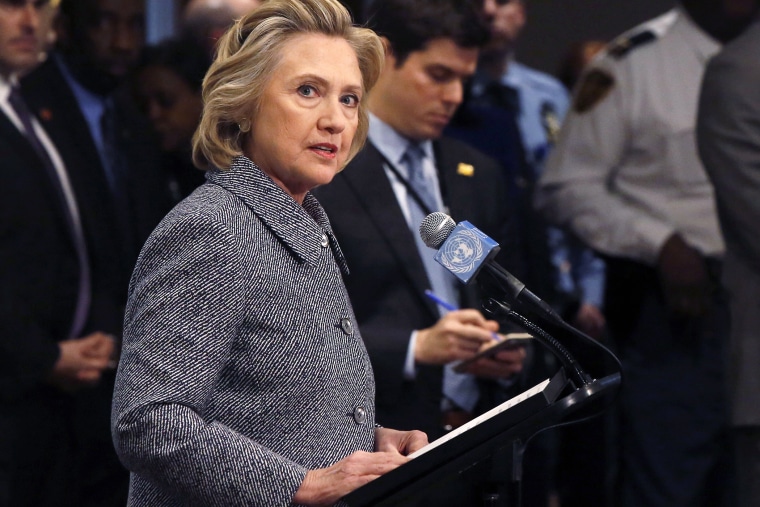Mitt Romney has invested an enormous amount of time, energy, and resources into trolling President Obama for the last several years, to the point that the two-time failed presidential candidate has become one of his party's highest-profile attack dogs. But as the next presidential election takes shape, the former governor is picking up a new hobby: trolling Hillary Clinton.
Commenting yesterday on the New York Times article on the Clinton Foundation's international donors, Romney said, "I was stunned by it. I mean, it looks like bribery." The Republican added there is "every appearance" that the former Secretary of State "was bribed."
That's obviously a very serious allegation. And like so many of Mitt Romney's other allegations, it also appears to be completely untrue. (Given Romney's previous praise of the Clinton Foundation's foreign partnerships, it's also a little ironic.)
By now, you've probably heard the gist of the New York Times story.
At the heart of the tale are several men, leaders of the Canadian mining industry, who have been major donors to the charitable endeavors of former President Bill Clinton and his family. Members of that group built, financed and eventually sold off to the Russians a company that would become known as Uranium One.
It's a little convoluted, but the piece, based in part on conservative writer Peter Schweizer's new book, tries to connect several dots to create an unflattering picture: the State Department approved a deal during Clinton's tenure allowing a Canadian mining company to sell its uranium business to Russia. That same company had donated heavily to the Clinton Foundation. Complicating matters, after Russia announced plans to buy the uranium business, Bill Clinton was paid handsomely to deliver a speech at a Russian investment bank.
The allegation, then, is that the donations influenced the process -- the Clinton Foundation received money from the company, the Clinton-run State Department approved a deal that benefited the company and its buyers. It's why Romney's suddenly comfortable throwing around words like "bribery."
The problem, of course, is that the relevant details don't support the thesis. On the contrary, the facts seem to disprove the charge quite clearly. Hillary Clinton had nothing to do with the review of the Uranium One deal, and nine separte U.S. agencies -- the Treasury Department, the Justice Department, the Commerce Department, et al -- were involved in the process, not just State.
It's entirely possible some the Clinton Foundation's donors hoped to curry favor with Hillary Clinton, but there's literally no evidence at all that she ever lifted a finger to help the Canadian mining company or any other entity that ever contributed a dime.
Indeed, in this case, the timing doesn't even make sense -- the Canadian company donated to the Clinton Foundation in early 2008. Hillary Clinton didn't become Secretary of State until a year later.
NBC News added this morning, "[U]pon reflection, that Times article doesn't hold up that well 24 hours after its publication."
One of the more striking things about the media's reaction to the allegations yeserday is the way in which the factual details weren't considered determinative. Much of the analysis I saw yesterday included phrases like, "The facts may be on Clinton's side, but..." or "The substance of Clinton's defense is entirely accurate, but..."
This is then followed by some discussion about "narratives" and "perceptions," unrelated to what actually happened in this case, which doesn't appear to be controversial at all.
In fairness, there are some legitimate, broader questions surrounding the Clinton Foundation's work, including donor-disclosure agreements and amended tax returns. The Democratic candidate and her campaign can't just ignore these issues; they deserve answers.
But the "bribery" talk is still bullpucky.
Paul Krugman, meanwhile, said the careless rhetoric sounds like the return of "Clinton rules" that were common in the 1990s: "The usual rules didn't seem to apply; instead it was Clinton rules, under which innuendo and guilt by association were considered perfectly OK, in which the initial suggestion of lawbreaking received front-page headlines and the subsequent discovery that there was nothing there was buried in the back pages if it was reported at all."
Krugman added, "[M]aybe there's something there. But given the history here, we'd all be well advised to follow our own Clinton rules, and be highly suspicious of any reports of supposed scandals unless there's hard proof rather than mere innuendo."
